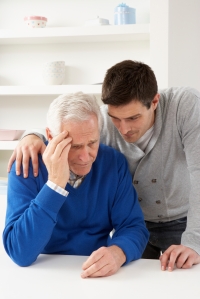Carers week
What is important to know as a carer? It’s not easy to say which part of this role is the most important, there are lots of key issues around being a carer. So, in no particular order:
You are not alone. There are plenty of other people who are carers, who are going through a similar thing as you, with similar thoughts and stresses. Feelings that you are isolated, that this is an impact on your life, sometimes huge and sometimes not so big an impact, but impact nevertheless.
It can often be thankless. The person that you care for might be your loved one and they may have an understanding of what you do for them and be grateful for the support. Sometimes, even when they understand it, the support becomes habituated and therefore expected. For people who lack capacity to understand that they are being cared for, they might be lovely towards you and you could have an excellent and rewarding relationship with them as a result, but the words “thank you” are never verbally expressed.
There is help out there. There are plenty of condition specific charities out there, which can provide information and sometimes practical support as well. There are also support groups of carers or people with that condition that will share experience and information that is invaluable. Carers are also entitled to a Care Act assessment of their needs to ensure that as well as the needs of the person with the disability, that their needs are assessed and met.
Stress is normal. Providing support for another person means that you take on a sense of responsibility for their lives, as well as the responsibility that you have for your own life! And depending on the stability of the condition that your loved one is living with, there can be huge highs and lows of health, which just adds to the stress of the whole situation. It is useful to understand this pattern and then mentally prepare for something going wrong in the future.
There is stigma attached to disability. Although there have been many media and social media campaigns looking at different aspects of disability, it is often not well represented in the media. Most TV shows and films do not portray the proportion of people with disabilities that there are in the community. The social media campaigns have improved the situation, as often when presented with information people’s prejudice disappears or at least dissipates to a degree, as the issue is one of a lack of understanding. And most able-bodied people are learning all the time, there is always something new to consider.
There is a clue in the name of – unpaid work! It is both unpaid and it is work! Statistically, across the globe, the larger share of unpaid work is done by women and although the caring role can be highly rewarding, it is nevertheless work.
So to all carers out there – Well done, you are doing a great job, which is appreciated. Take a moment to give yourself some credit. And if you need some help, be brave and ask for it. Good luck.






Leave A Comment